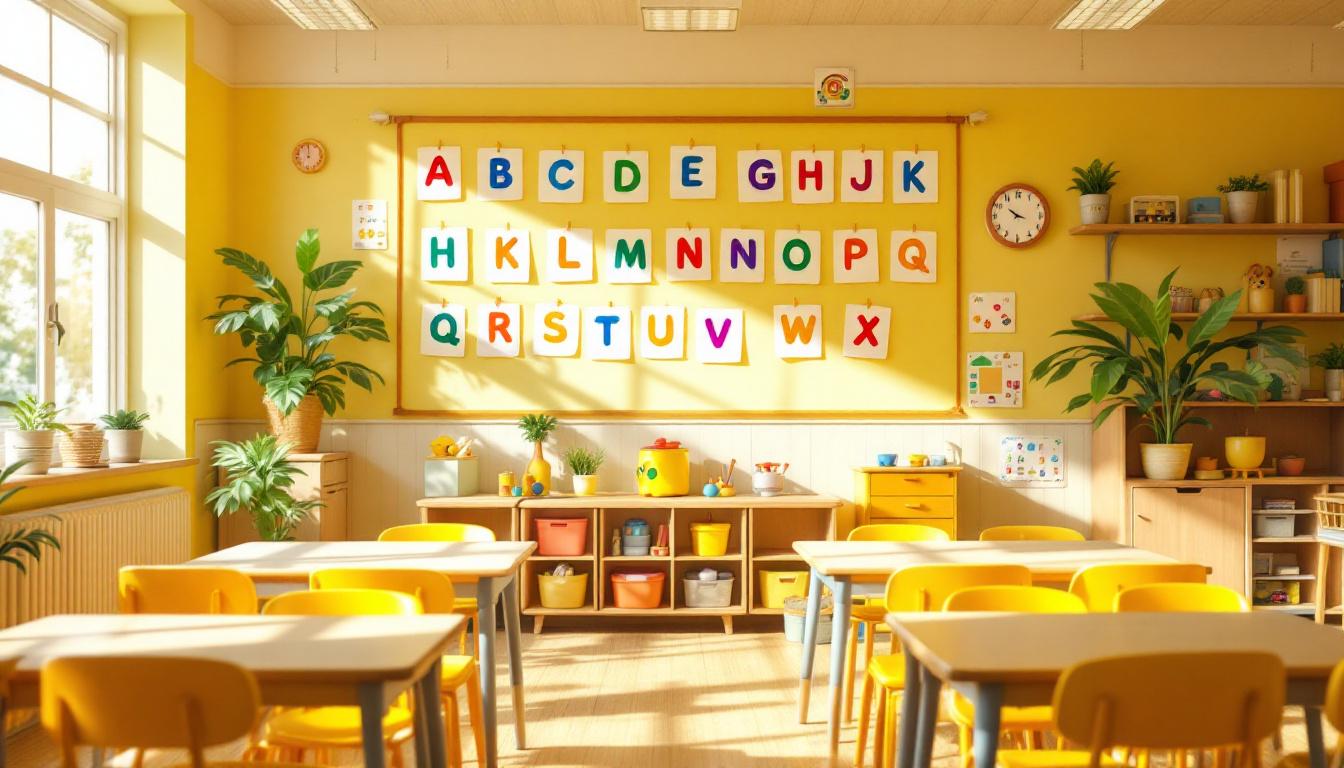What’s the Best Age to Start Speech Therapy?
Understanding the Optimal Timing for Speech Therapy in Children
Table of Contents
Exploring Speech Therapy: Timing and Impact
Speech therapy can be a pivotal resource for enhancing communication skills, but knowing the right age to initiate it can be challenging for many parents. While some children naturally overcome early language bumps, others benefit significantly from professional intervention. The key question many caregivers grapple with is: what’s the best age to start speech therapy? This article aims to demystify the complexities surrounding speech therapy timing, delving into developmental milestones, the benefits of early intervention, and the step-by-step assessment process. Whether you're an anxious parent or curious caregiver, understanding these elements can be crucial in supporting a child's communicative journey.
Understanding Developmental Milestones in Speech and Language

What are the developmental milestones related to speech and language in children?
Developmental milestones related to speech and language in children begin early in life. From birth to 5 months, infants coo and vocalize, recognizing their caregivers’ voices and responding to sounds. This pivotal early communication lays the foundation for future language skills.
By the time a child reaches 12 months, they typically say their first words and can understand simple phrases, highlighting their progress in both expressive and receptive language. It is crucial for parents to monitor these milestones; if a child struggles to meet them, seeking guidance from a speech-language pathologist (SLP) may be warranted.
As children approach 18 to 24 months, they generally expand their vocabulary to around 50 words and start combining these into two-word phrases. This period is vital for language development, and delays in these areas could signal the need for early intervention.
By age 3, children should be using three-word sentences and able to follow two-step commands. At this stage, growth in both expressive (speaking) and receptive (understanding) language skills is significant. Ensuring children reach these benchmarks is essential, as missing key communication milestones often leads to recommendations for therapy.
Monitoring these developmental milestones helps guide timely interventions. If parents notice their child falling behind or showing resistance, they should consult a professional for evaluation.
Determining the Best Age to Begin Speech Therapy

What age should children start speech therapy?
Children should ideally begin speech therapy when communication milestones are missed. Key ages to note:
- Birth to 12 months: If a child is not babbling or unable to recognize names of common objects.
- 1 to 2 years: Struggling to say simple words, or if vocabulary is fewer than 20 words.
- 2 to 3 years: If they aren’t combining words into short sentences or their speech is largely unintelligible.
- 3 years and older: If speech is not understandable or significant delays in language comprehension are observed.
Early intervention is crucial, and parents should not hesitate to consult with pediatricians or speech-language pathologists as soon as concerns arise.
Signs for early referral
Recognizing the signs early can lead to effective intervention. Indicators include:
- 12-15 months: Limited sounds, lack of gestures (like pointing), and no first words.
- 18-24 months: Grunting instead of verbal communication, omitting word ends, and lacking two-word combinations.
- 2-4 years: Failure to combine words, vocabulary below 50 words, and unintelligible speech.
- 4-5 years: Reliance on repeating sounds, difficulty following directions, or excessive sound repetition.
Role of speech-language pathologists
Speech-language pathologists (SLPs) are equipped to evaluate and assist with both expressive and receptive language skills. They can help children overcome:
- Articulation disorders
- Language delays
- Fluency disorders
- Social communication difficulties
Seeking an evaluation from an SLP poses no risks and can provide reassurance or necessary interventions if delays are detected. Early action helps foster essential communication skills, preventing future challenges and building a strong foundation for academic and social success.
Identifying Signs That Indicate the Need for Speech Therapy

How can I recognize if my child needs speech therapy?
Recognizing whether a child requires speech therapy involves observing various signs related to their communication development. Parents should be vigilant about specific milestones and symptoms that could indicate a need for professional intervention.
Lack of Vocabulary Development
Here are some age-specific milestones parents should track:
- By 12-15 months: The child should begin to express their first words and use simple gestures like waving or pointing. If these are missing, it may indicate a need for evaluation.
- By 18-24 months: Children should typically have a vocabulary of 20 to 50 words and begin to combine words into simple phrases. A lack of this vocabulary growth could be concerning.
- By ages 2-3 years: Children should combine words into short sentences and have around 50 words. If they are not meeting these milestones, speech therapy could be beneficial.
Difficulties with Pronunciation and Understanding
Struggles with articulation or understanding can also serve as warning signs:
- Children around age 4-5 years may repeat the initial sounds of words, have trouble following directions, or show frequent repetition of sounds, all named indicators for potential speech disorders.
Social Communication Challenges
Effective communication is crucial for social interaction. Children who consistently have trouble expressing their needs, playing with peers, or showing frustration in communication may need support.
If you notice any of these signs, consult a licensed speech-language pathologist (SLP) for a thorough evaluation. The earlier you seek help, the better the developmental outcomes for your child.
The Impact of Early Intervention in Speech Therapy

Why is early intervention important in speech therapy?
Early intervention is crucial in speech therapy as it significantly enhances a child's communication skills, social interactions, and overall academic success. By addressing speech and language difficulties early, children acquire essential tools to express themselves effectively, leading to improved cognitive development and critical thinking abilities. Research shows that early intervention not only boosts literacy skills but also fosters emotional well-being, reducing risks of frustration and low self-esteem.
Benefits for cognitive and social development
The early stages of language development are foundational. During this period, children's brains are developing rapidly, making them particularly receptive to learning. Engaging in speech therapy can promote not only communication skills but also support cognitive abilities, problem-solving skills, and academic achievement. This is particularly evident when parents incorporate therapy strategies into their daily routines at home.
Long-term advantages
Research indicates that early intervention can reduce the need for special education later on and lower future costs associated with therapeutic interventions. Children who receive support for speech and language delays in their formative years may avoid the longer-lasting repercussions of communication difficulties, including challenges in social interactions and relationships. Early support sets a strong foundation for lifelong skills.
Parental roles in early intervention
Parental involvement is crucial in the early intervention process. Parents are encouraged to monitor their child’s speech and language development closely. If concerns arise, seeking a referral to a speech-language pathologist can guide their child in the right direction. Proactive engagement helps integrate learned strategies into everyday life, enhancing the child's progress through speech therapy.
The Ongoing Relevance of Speech Therapy Across Ages
Is there a specific age when speech therapy is most effective?
Speech therapy is effective at any age, but early intervention is particularly advantageous, especially for children. Research indicates that addressing speech and language challenges early can lead to more significant improvements in communication skills and quality of life. For instance, children under three often show the most rapid progress due to their developing brains. They can effectively master foundational skills that are pivotal for future communication goals.
By incorporating tailored activities and strategies that suit the individual's age and specific needs, speech therapy enhances various skills. This can include improving articulation, fluency, and even cognitive-communication abilities. As children grow, the therapy can adapt to address their evolving challenges and continue to build their communication competencies.
What about older children and adults?
Speech therapy isn't just for the youngest learners; it retains its relevance into adolescence and adulthood. Older children may struggle with issues such as social communication, language development, or articulation, and can significantly benefit from specialized speech therapy.
Adults facing conditions like strokes, head injuries, or progressive disorders like aphasia also find valuable support in speech therapy. The customizable nature of therapy caters to diverse age groups and developmental levels, making it a vital resource throughout life. Whether addressing speech disorders or promoting effective communication skills, the engagement of certified speech-language pathologists ensures positive outcomes at every age.
In summary, while early intervention is often emphasized for its benefits, it’s important to recognize that it is never too late to seek help. Speech therapy is an ongoing resource that can foster better communication abilities for individuals of all ages.
Indicators and Timing for Referral to Speech Therapy
When should a child be referred to speech therapy?
A child should be referred to speech therapy if they are showing signs of delayed communication skills. Indicators include:
- 0-3 months: Lack of responsiveness to sounds or faces.
- 6-9 months: Difficulty babbling or cooing.
- 12-15 months: Only making a few sounds, not using gestures like waving or pointing, and not saying any first words.
- 18-24 months: Grunting or pointing instead of using words, not using two-word combinations, and having a limited vocabulary.
- 2-4 years: Not combining words into phrases, having fewer than 50 words in their vocabulary, and speech that is primarily unintelligible.
- 4-5 years: Repeating initial sounds of words and difficulty following directions in class.
Acting quickly when signs of lagging behind in speech development appear is vital, as early intervention yields the best outcomes.
Addressing various speech issues
The types of communication challenges that can be addressed by pediatric speech therapists include:
- Articulation disorders: Difficulty pronouncing sounds correctly.
- Language delays: Struggles with understanding or using language.
- Fluency disorders: Issues such as stuttering.
- Voice disorders: Problems with pitch, volume, or quality of voice.
- Social communication skills: Understanding and using language in social contexts.
It is crucial to consult a speech-language pathologist (SLP) as soon as any concerns arise about speech development. Starting therapy at the right time promotes effective communication and can greatly enhance a child's long-term educational and social success.
Additionally, even if a child exhibits some speech difficulties, parents are encouraged to seek an evaluation for peace of mind, whether their child is on track or needs a tailored intervention plan.
Advantages of Speech Therapy at Various Stages of Life

What are the benefits of starting speech therapy at different ages?
Starting speech therapy at different ages offers numerous benefits tailored to individual developmental stages.
Early childhood benefits
Early intervention, especially from birth to age three, is critical as it aligns with rapid brain development. This is when children learn foundational skills, such as cooing and babbling, progressing toward forming words and simple sentences. If a delay is identified, early speech therapy can greatly enhance:
- Communication Skills: Children learn to express needs and emotions effectively.
- Academic Readiness: Ongoing speech development prevents future academic challenges.
- Social Skills: Improved communication skills facilitate social interactions and boost self-esteem.
Support for older children and adults
For older children, typically ages 5 to 8, continued speech therapy can help refine language use and enhance:
- Complex Language Structures: Children can master advanced grammar and vocabulary necessary for success in school.
- Social Communication: Therapy improves skills for effective peer interaction and enhances cognitive abilities.
Even adults benefit from speech therapy to recover lost communication skills due to injury or illness. This signifies that effective speech therapy is relevant throughout life, showcasing its ability to significantly improve communication effectiveness at any age.
A Look at the Speech Therapy Assessment Process
What is the process for speech therapy assessments?
Speech therapy assessments are thorough evaluations carried out by licensed speech-language pathologists (SLPs). These assessments aim to evaluate various aspects of a client’s communication, including:
- Speech and language development
- Cognitive-communication skills
- Feeding and swallowing abilities
The assessment process generally involves several critical steps:
- Case History Review: Gathering background information about the child's development, medical history, and any previous evaluations.
- Interviews: Engaging with parents or guardians to better understand the child’s communication skills and identify specific concerns.
- Standardized Evaluations: Administering tests that measure speech and language capabilities.
- Observations: Monitoring the child in various settings to understand how they communicate in real-life situations.
What tools and methods are used by SLPs?
SLPs utilize a variety of tools and methods to conduct comprehensive evaluations. These include:
- Norm-Referenced Tests: These help compare a child’s abilities with peers, providing insights into their relative performance.
- Criterion-Referenced Tests: These assess performance against developmental milestones, aiding in identifying specific areas of concern.
- Dynamic Assessments: These evaluate a child's potential for learning and help inform intervention strategies.
What are ASHA certification requirements?
To ensure effective assessments, SLPs must be certified by the American Speech-Language-Hearing Association (ASHA). Certification requires candidates to:
- Complete a master’s or doctoral degree in speech-language pathology.
- Complete a supervised clinical fellowship.
- Pass the Praxis examination, which assesses necessary competencies.
The assessment process not only helps in diagnosing communication disorders but also assists SLPs in crafting personalized intervention plans that cater to the unique needs of each child.
Overcoming Communication Hurdles with Tailored Speech Therapy
Addressing Articulation and Fluency Disorders
Speech therapy is a versatile tool for addressing various communication challenges, including articulation and fluency disorders. Articulation disorders can hinder clarity in speech, making it vital for children to receive the right strategies to produce sounds correctly. For instance, a child who struggles to pronounce certain syllables may find themselves feeling frustrated. When speech therapy is initiated early, therapists can tailor exercises that specifically target these articulation issues, resulting in noticeable improvements in speech intelligibility.
Fluency disorders, which can manifest as stuttering or hesitations, require specialized techniques from speech-language pathologists (SLPs). Therapists employ a variety of techniques, such as breathing exercises and paced speech practices, that help children develop smoother speech patterns. Since fluency is closely connected to a child's self-confidence in communication, addressing these issues promptly can lead to enhanced social interaction skills and overall emotional well-being.
Promoting Cognitive and Social Communication Skills
Another significant benefit of speech therapy is its role in augmenting cognitive and social communication skills. Early intervention not only supports speech development but also nurtures essential cognitive abilities like problem-solving and critical thinking. SLPs engage children in activities that stimulate language usage within play settings, effectively bridging the gap between communication skills and cognitive growth.
Additionally, fostering social communication skills is crucial for engaging with peers. Effective strategies may include role-playing scenarios and practicing conversational turn-taking. These activities not only enhance a child's vocabulary but also encourage a better understanding of social cues and the dynamics of conversation.
In summary, tailored speech therapy offers a holistic approach to overcoming communication hurdles and greatly improves children's quality of life.
Navigating Speech Development with Confidence
Speech development in children can be a journey with ebbs and flows, requiring patience, observation, and sometimes, timely intervention. Recognizing the right moment to seek help through speech therapy can substantially benefit a child's ability to communicate effectively. Whether you notice missed milestones or are motivated by the desire for early evaluation, the importance of action cannot be overstated. Armed with knowledge about developmental benchmarks and the benefits of early speech intervention, caregivers play a pivotal role in advocating for their child's communicative success, ensuring a brighter, more connected future.
References
- What Age is Best for Speech Therapy? - - Too Old? Too Young?
- When to start speech therapy - Toddler Talk
- What Age Should Children Begin Speech Therapy? - Expressable
- The Best Age for Speech Therapy - Wee Talkers
- What Age to Start Speech Therapy for Children?
- What Is the Best Age to Start Speech Therapy? - Expressable
- What Age Is Too Late for Speech Therapy?
- Speech Therapy for Kids and Toddlers: What to Expect - Parents
.png)

































